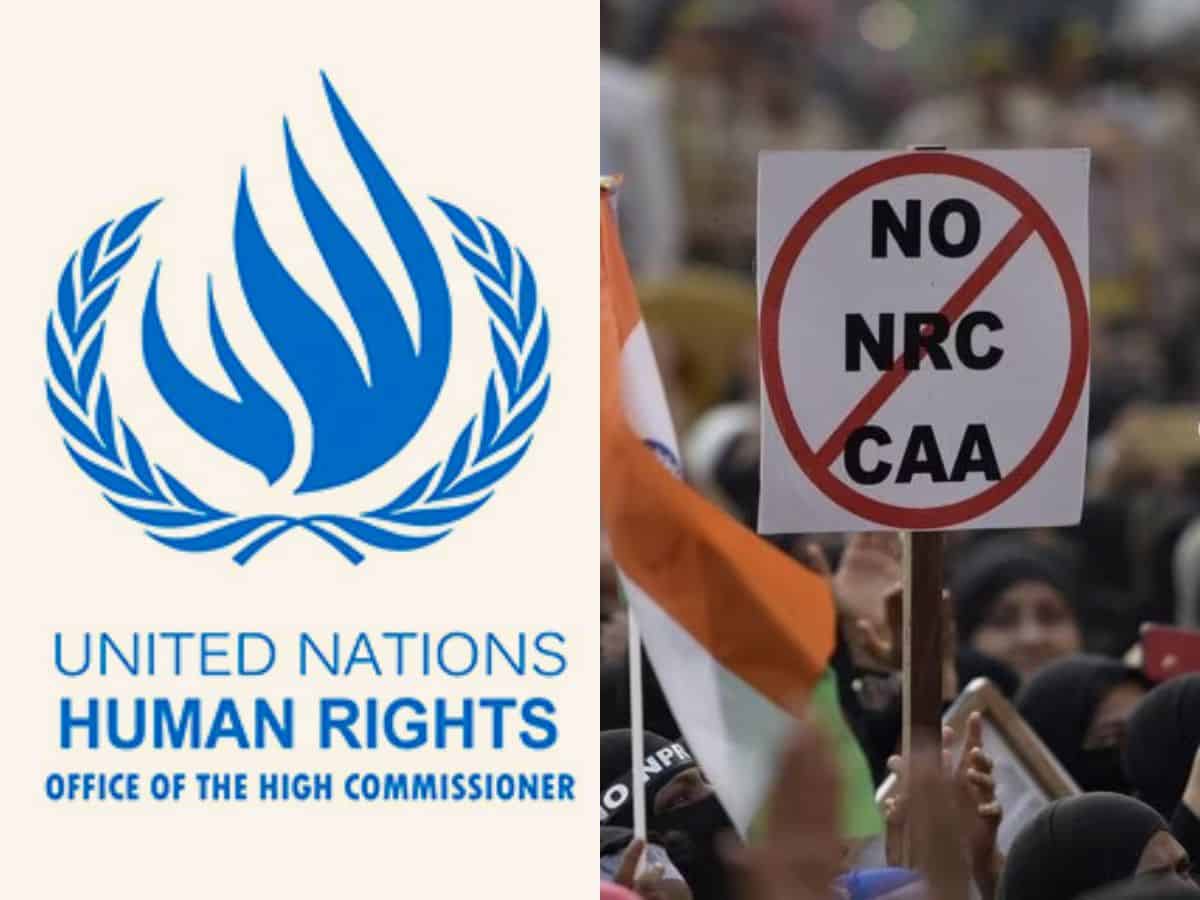
The United Nations (UN) raised concerns over India’s controversial Citizenship Amendment Act (CAA) terming the law as ‘fundamentally discriminatory in nature’ and ‘a breach of India’s international human rights obligations’.
Speaking to Reuters on March 12, a spokesperson from the office of the United Nations High Commissioner for Human Rights said that the UN will study CAA rules to check if it complies with the international human rights law.
CAA should view with NRC, NPR: Owaisi
The All India Majlis-e-Ittehadul Muslimeen (AIMIM) president Asaduddin Owaisi on Tuesday, March 12, explained why CAA should be seen together with NPR (National Population Register) and NRC (National Register of Citizens).
“This government is making rules after four years. I would like to tell the country. The present Home Minister (Amit Shah) has said in Parliament and mentioning my name that NPR will also come, NRC will also come. He (Home Minister) had said this in many TV interviews. I would like to say don’t see CAA (alone). You have to see this together with NPR and NRC. When that happens, of course, the biggest target would be Muslims, Dalits, Adivasis and the poor,” he said.
Taking the example of Assam where the NRC was exercised, resulting in the CAA, Owaisi said that in the 19 lakh names that came out, 10 to 12 lakh were Hindus while two lakhs were Muslims.
“Assam Chief Minister Himanta Biswa Sarma said that about 10 to 12 lakh Hindus whose names did not figure in the list would get citizenship when CAA is implemented as their religion is included in it. What about the two lakh Muslims? If this is not injustice then what is,” Owaisi asked.
It is false to say that Hindus, Sikhs or Christians who were living in Pakistan, Afghanistan and Bangladesh could not be given citizenship, he claimed.
“The government always had power. They could have given by executive order,” he said.
The Narendra Modi government, on March 11, notified the implementation of CAA, just days ahead of the announcement of the 2024 Lok Sabha elections.
The Citizenship Amendment Act, which was passed in 2019 by the Indian Parliament and subsequently got the president’s assent, was put on hold by the Modi government after facing massive nationwide protests from Opposition parties and citizens who termed the law as “anti-Muslim”.
According to CAA, persecuted non-Muslim immigrants including Hindus, Sikhs, Buddhists, Jains, Parsis and Christians from neighbouring Muslim countries Afghanistan, Pakistan and Bangladesh will be granted immediately Indian citizenship. The only condition is they should have arrived in India before December 31, 2014, or lived in India for six years.
The CAA has been heavily criticised since the beginning, with many calling it unconstitutional by granting citizenship purely based on religion.
